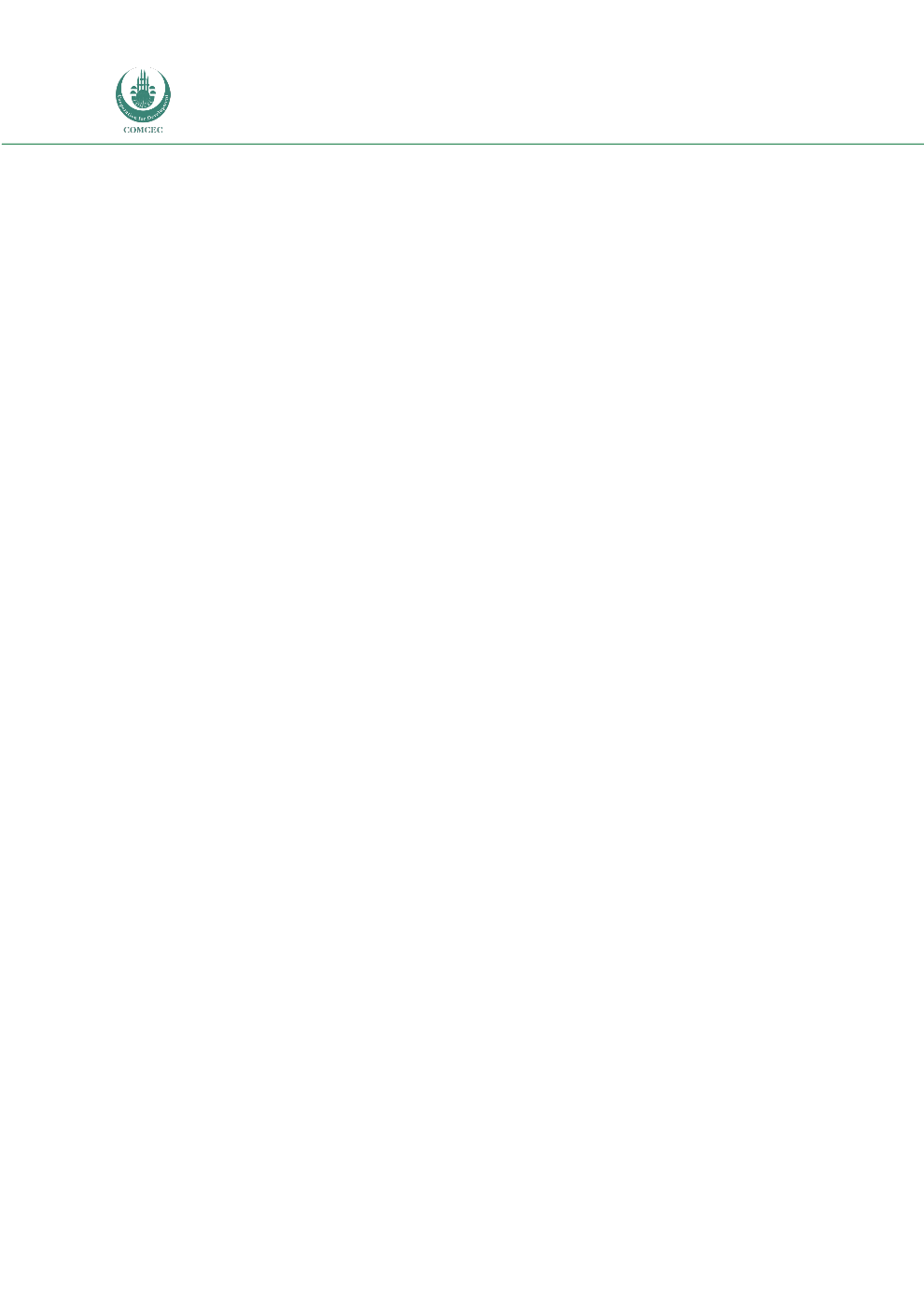

Risk Management in
Islamic Financial Instruments
124
under Shari'ah, in a two-step contract, financing can be provided through the Islamic bank’s
participation in the funding process as an actual buyer. Islamic banks utilize two mudarabah
contracts (one as a supplier with the client and the other as a buyer with the actual supplier).
Another mitigative function recommended by Ahmed and Khan is on-balance sheet netting, i.e.
the matching out of mutual gross financial obligations and accounting for only the net
positions of the mutual obligations.
Immunization in order to mitigate potential FX risks and risk transferring techniques,
including the use of credit derivatives, namely swaps and options contracts, are also functional
for risk mitigation purposes. See the previous section on Islamic derivatives to learn more
about the procedures through which these instruments are executed. Collateral, guarantees,
and loan loss reserves are protective mechanisms, in and of themselves, as they improve credit
quality and allow for a reduction in credit risks.
Ahmed and Khan conclude by citing that there is a need to introduce a risk management
culture in Islamic banks and that the non-availability of financial instruments to Islamic banks
presents a challenge to managing their ability to combat market risks, compared to
conventional banks. As discussed in the last section, doing so may not be possible if Fiqhi-
related issues and Shari’ah decisions do not fall in the favor of increased Islamic derivative
development.
6.2 SHARIAH HARMONIZATION IN PRODUCT DEVELOPMENT
Developing standardized Shariah compliant products is very important. The mid-term review
of the Ten-Year Framework identified three indicators to determine the level of progress in
Shariah harmonization in product development. First is the number and usage of standardized
products with published structures and contracts. The second indicator is the volume of
published research on product innovation and standardization. The third is the number and
use of innovative products (
A Mid-Term Review
106).
Shariah harmonization amongst Muslim countries and other countries implementing Islamic
finance can be achieved by instituting centralized and decentralized research and development
of Islamic financial products. Currently, there is a lack of agreement amongst countries and
institutions on how to make Sukuk, Takaful, personal finance and liquidity management
products Shariah compliant. However, enabling research and academic institutions to conduct
more thorough research on Islamic finance can result in a greater diversity and conceptual
clarity of Islamic financial products (
A Mid-Term Review
125).
Another way of improving Shariah harmonization is by establishing national boards. National
boards can help fill the void of Shariah scholars at each institution. Furthermore, by
establishing a national board, available Shariah scholars have more time to expend on product
development. Creating a national board is a very centralized mode of ensuring Shariah
compliancy. Other countries have opted to implement a more decentralized model that will
allow for a diversity of views and allow banks to have greater flexibility in adopting standards

















